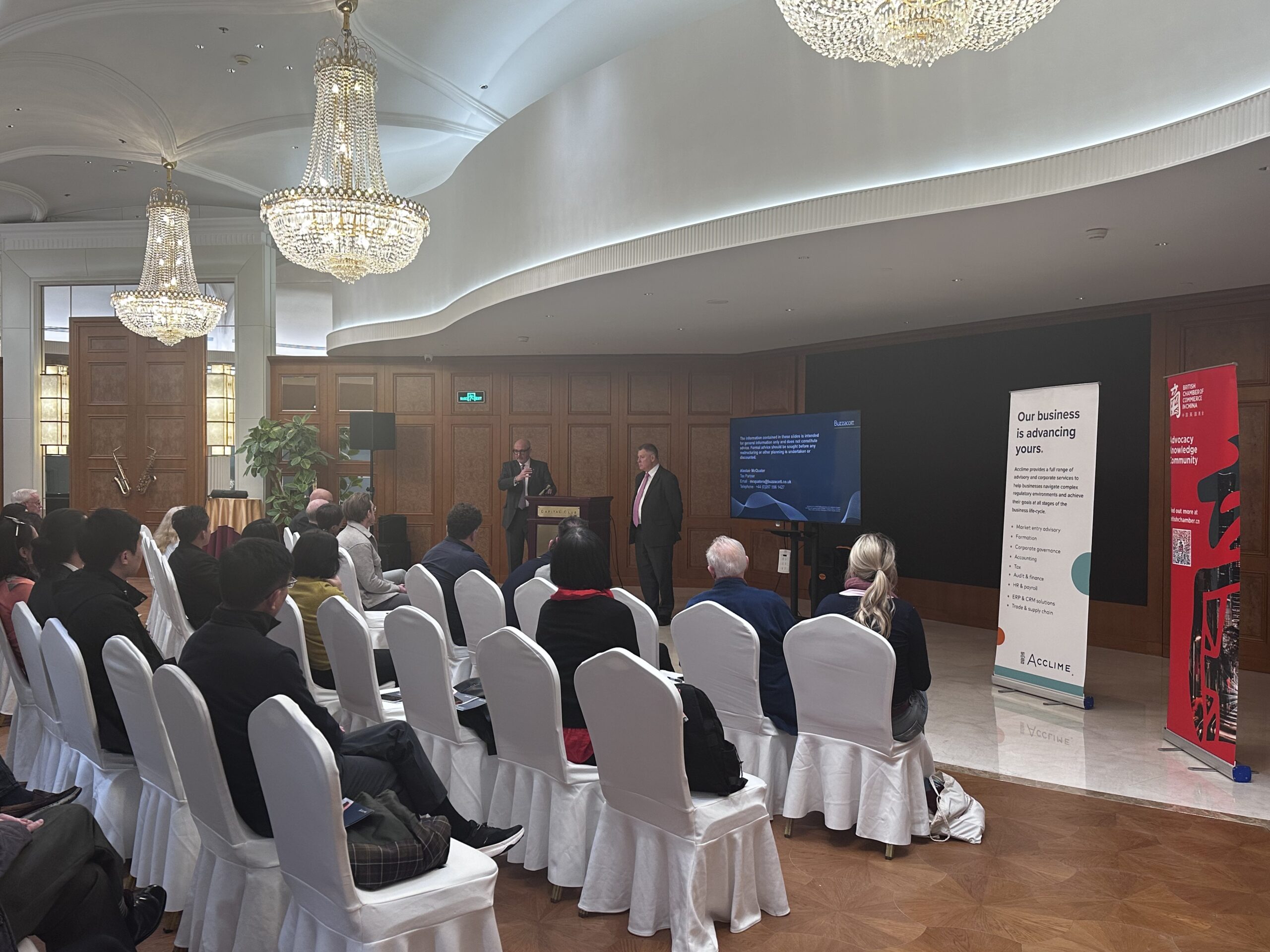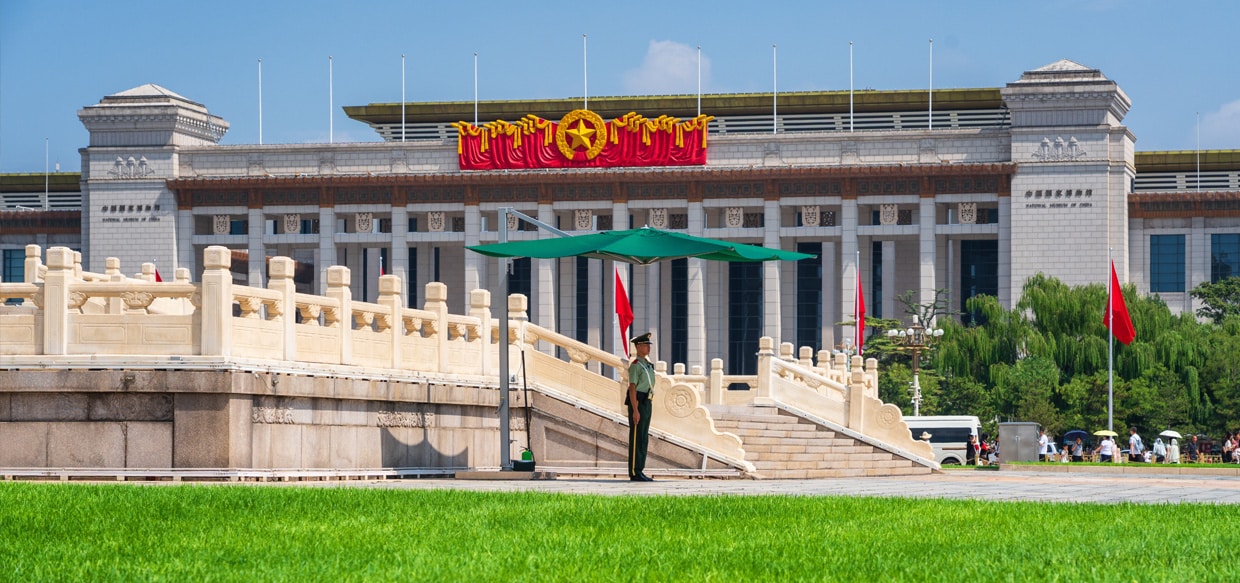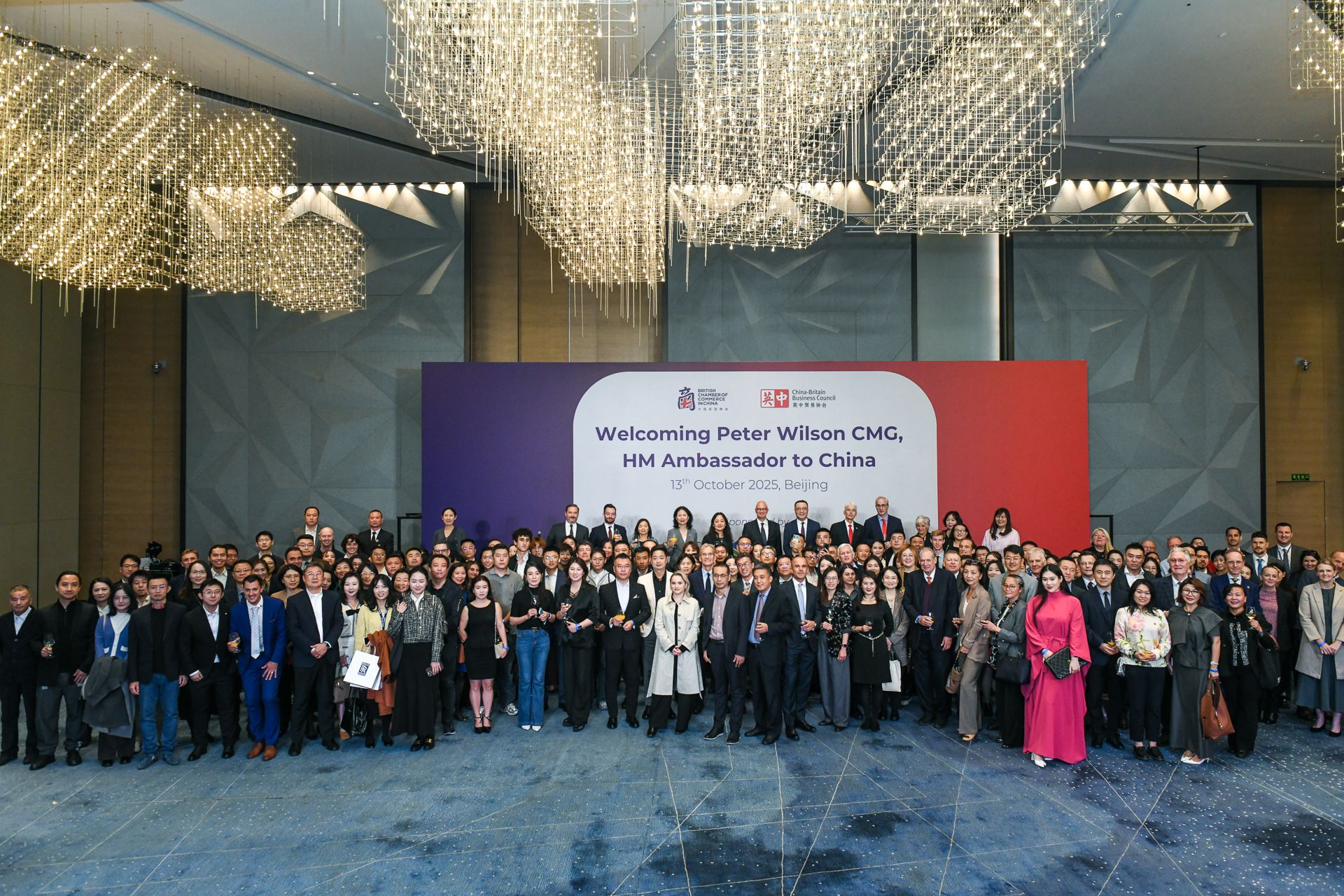Earlier this week, Acclime, together with British Chamber of Commerce in China (BritCham China), hosted…

British business in China: Ukraine conflict initial impact report
As the voice of British business in China, the British Chamber of Commerce in China conducted a pulse survey to understand the impact and potential economic implications.
This survey was conducted on Thursday 10th to Friday 11th of March. It cannot be categorised as truly representative of all British businesses (35 responses), but despite a small sample size, the data provides a useful snapshot of British companies’ experiences and responses.
What’s happening in Ukraine, and how has China responded?
On the 24th of February, Russian troops invaded Ukraine, and over the last 2 weeks we have witnessed extraordinary and heart-breaking scenes across the country. The US, UK, and Europe have quickly responded to the invasion with wide-ranging sanctions targeting Russian businesses and individuals.
China has also responded, but this response has seemed conflicted – torn between maintaining its strategic partnership with Russia, taking a strong stance in support of territorial integrity, and defending China’s own economic interests, as well as considering the benefits of aligning with the West on this issue.
We are aware that Russia’s dependence on China has dramatically grown in recent years, with bilateral trade reaching an all-time high of $150bn in 2021. So while many were predicting that Russia would turn closer to China to insulate its economy from western sanctions, many of us on the ground in China were speculating on what the implications for businesses would be.
How will conflict between Russia and Ukraine affect British businesses in China?

Despite the unprecedented speed and ferocity of international sanctions, the initial impact here in China is mixed, with a ‘wait and see’ attitude being adopted by most businesses.
Our main takeaway is that the uncertainty of the situation has led to disruptions in investment decisions, suggesting that British businesses are concerned about further deterioration of the geopolitical situation, although there has not been any immediate impact for most respondents. Businesses anticipate the possible impact of supply chain disruptions and rising energy costs (which recently hit a 10-year high in China).
One fifth of companies report that their local activity has been affected by sanctions (18%). All responded that their investment decisions had been impacted, with some reporting restrictions on business activity due to sanctions and an increase in regulatory risk. However, opinion was split on the effect of sanctions on China’s attractiveness as an investment destination, with no clear majority.
What type of sanctions have been introduced, and how do they affect businesses?

Over half (53%) of respondents reported that sanctions currently had no impact on their operations but they anticipated future impact.

Of these respondents who anticipated a future impact on their operations, supply chain issues were the most commonly predicted business disruption, with potential impacts on companies in sectors from manufacturing to consumer goods and retail.
Energy costs and import/export issues were also mentioned by a number of businesses in civil engineering and construction, manufacturing, and IT and telecommunications. 50% of this group mentioned that investment decisions had been disrupted, reflecting a cautious attitude about possible developments in the geopolitical situation.
Will businesses still want to invest in China?

For those respondents whose global operations (excluding China) have been affected (24%), supply chain issues and rising energy/materials costs were the most reported issues. However, these businesses were less pessimistic about the effects of the war in Ukraine on the attractiveness of the China market, with the majority reporting no change.
However, 33% reported that the current conflict has had a negative impact.
Conclusion
It is our hope that this initial survey sheds preliminary light on the potential issues, as it finds that companies remain resilient and committed to the China market in the immediate reaction to the war in Ukraine, despite political and economic disruptions.
It remains to be seen whether China may play a larger role in this conflict – if so, its action may influence global events as well as further repercussions to business here in China.
Click here to download the full report!



